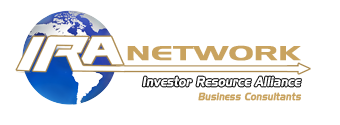More Info on Equity Financing
*Debt Financing vs. Equity Financing:
To raise capital for business needs, companies primarily have two types of financing as an option: equity financing and debt financing. Most companies use a combination of debt and equity financing, but there are some distinct advantages to both. Principal among them is that equity financing carries no repayment obligation and provides extra working capital that can be used to grow a business. Debt financing on the other hand does not require giving up a portion of ownership.
IRA can offer the following services to accommodate virtually any funding needs. In some instances you may need two or more types of funding, such as:
Purchase Order Financing
Rapidly mobilize orders and shipments through purchase order financing and letters of credit. Business at the speed of today’s economy.
Equipment Financing
Equipment financing helps you purchase new or used equipment to meet increased demand, enhance operational efficiency and ultimately scale revenue. Receive up to 100% of the equipment purchase price.
Invoice Financing
Free up locked cash-flow by advancing receivables from invoices and contracts. Say goodbye to net-terms and hello to cash today.
Construction Financing
Funding that works with your construction company’s cash-flow cycles. Say “yes” to bids more often and receive funds to mobilize work, hire subcontractors, and purchase materials.
Debt Financing*
When a company borrows money to be paid back at a future date with interest it is known as debt financing. It could be in the form of a secured as well as an unsecured loan. A firm takes up a loan to either finance working capital, expansion or an acquisition.
Equity Financing*
Equity financing is the process of raising capital through the sale of shares. Companies raise money because they might have a short-term need to pay bills, or they might have a long-term goal and require funds to invest in their growth. By selling shares, a company is effectively selling ownership in their company in return for cash.
Merchant Cash Advance
A merchant cash advance (MCA) isn’t really a loan, but rather a cash advance based upon the credit card sales deposited in a business’ merchant account. A business owner can apply for an MCA and have funds deposited into a business checking account fairly quickly—sometimes as quickly as 24 hours after approval.
Key Takaways
- There are two types of financing available to a company when it needs to raise capital: equity financing and debt financing.
- Debt financing involves the borrowing of money whereas equity financing involves selling a portion of equity in the company.
- The main advantage of equity financing is that there is no obligation to repay the money acquired through it.
- Equity financing places no additional financial burden on the company, however, the downside is quite large.
- The main advantage of debt financing is that a business owner does not give up any control of the business as they do with equity financing.
- Creditors look favorably upon a relatively low debt-to-equity ratio, which benefits the company if it needs to access additional debt financing in the future.

